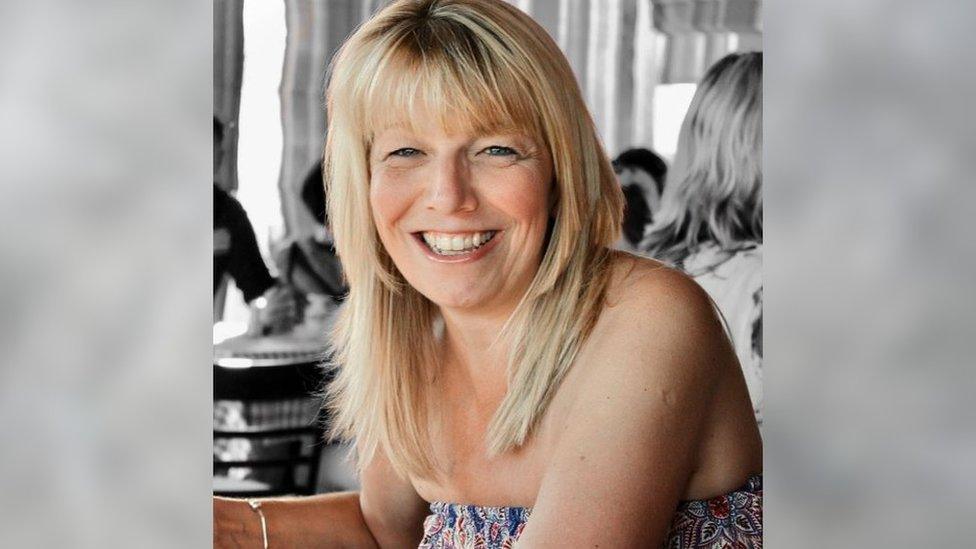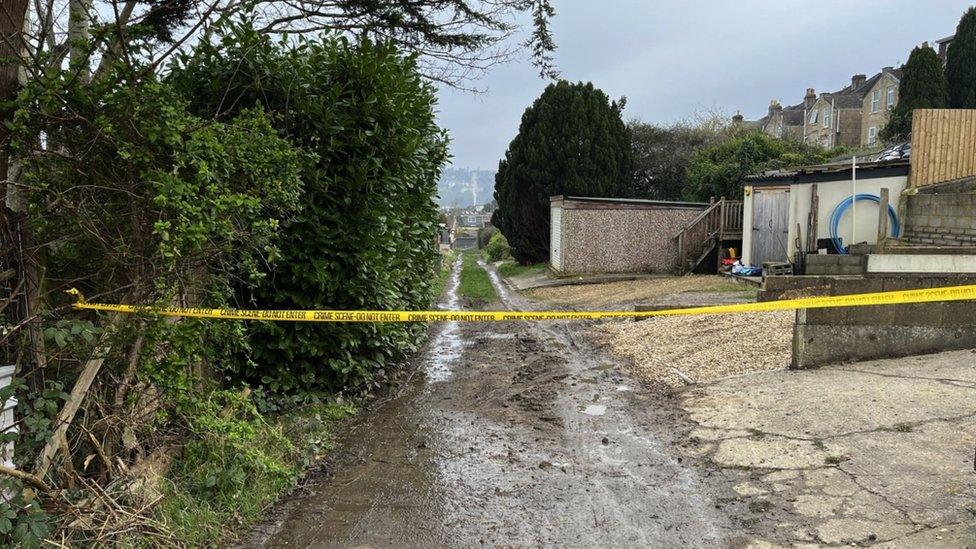Bristol mum with heart condition died after NHS 'neglect'
- Published

Sharon Goddard, 53, died after a holiday
A mum-of-three who had a rare heart condition died after receiving "neglectful" hospital care, an inquest has heard.
Sharon Goddard, 53, from Bristol, had Loeys-Dietz Syndrome and died on 19 December 2022 from aortic dissection.
An inquest was told that Surrey and Sussex Healthcare NHS Trust failed to provide basic medical attention.
A spokesperson for the trust said they were "profoundly sorry" and that changes had been made.
Ms Goddard's family are now calling for greater awareness of Loeys-Dietz Syndrome (LDS) to protect others who have it as it can make people susceptible to heart problems.
Hannah Goddard, the eldest of Sharon's three daughters, said: "Knowing that she lost her life due to the failure of the NHS and medical staff responsible for her care is unbelievably heart breaking."
'Bright smile'
A coroner ruled that Ms Goddard, who suffered from LDS, died from natural causes contributed to by neglect as a consequence of a failure to recognise and treat her aortic dissection - a life-threatening tear in the heart's main artery - in a timely manner, according to the Local Democracy Reporting Service.
An inquest at the Old Bailey in London took place on 31 October to 2 November last year.
It heard how the failures were partly systemic and partly operational and had a cumulative effect.
The coroner heard evidence that at various stages in Ms Goddard's medical care, those treating her failed to ask the right questions or recognise the severity of her condition.
Ms Goddard was returning from the Caribbean after celebrating 25 years of marriage to husband Neale as well as their joint 50th when she began experiencing chest pains as the plane landed and she was taken to East Surrey Hospital in Redhill.
'Death was avoidable'
She should have been seen within an hour of arriving at the emergency department at East Surrey Hospital and on her way to a specialist centre for cardiothoracic surgery within four hours.
But Ms Goddard, who worked in the NHS for 30 years, including at Southmead and Bristol Children's Hospital, was in A&E for more than 12 hours before being transferred for urgent surgery.
She was diagnosed with aortic dissection from a CT scan and told she needed emergency heart surgery.
It took six hours to get her to the operating table, in addition to the ten hours before when she was waiting for the diagnosis.
The inquest heard she suffered a cardiac arrest during the anaesthesia process, preventing the surgeons from performing the lifesaving operation.
Her family believe that the initial decision made by a paramedic set in train a series of delays that cost her life.
They say the care that followed was unacceptable and not appropriate for her condition as she needed emergency cardiac specialist treatment.
The coroner's verdict, delivered on 28 December, said: "I am satisfied, on the balance of probabilities that Mrs Goddard's death was avoidable."
'Profoundly sorry'
Hannah Goddard added: "Mum had a smile that could light up any room.
"Mum had a rare condition called Loeys-Dietz Syndrome, a genetic disorder that affects connective tissue. There are many symptoms, but the ones that carry the highest risk are related to the cardiovascular system.
"LDS can cause enlargement of the aorta which can lead to aortic aneurysm or dissection.
"Aortic dissection occurs when there is a tear in the inner layer of the aorta causing the layers to split.
"It is a life-threatening condition which, if not diagnosed via a CT scan and treated promptly, can be fatal.
"We want to stress the importance of educating people, particularly in the medical field, about Loeys-Dietz Syndrome and aortic dissection, so that a repeat can be avoided in the future.
She urged people to visit the Think Aorta education campaign webpages.
'Multiple missed opportunities'
A Surrey and Sussex Healthcare NHS Trust spokesperson said: "We are profoundly sorry and offer our deepest sympathies to Sharon Goddard's family during this difficult time.
"Whilst we cannot comment on individual cases, delivering high-quality care to our patients is our priority and we accept the coroner's findings.
"We have taken a number of actions since this incident took place and continue to work with our teams, to learn, improve our services and support the needs of our patients and their families."
Jackie Linehan, medical negligence and inquest solicitor at Bristol-based legal firm Enable Law, which is representing the family, said: "Sharon's loss was a complete tragedy.
"There were multiple missed opportunities. If her condition had been recognised and addressed on time, things very likely would have been different and she would be here with us.
"Systemic delays played an equal part to lack of recognition of her condition."

Follow BBC West on Facebook, external, X, external and Instagram, external. Send your story ideas to: bristol@bbc.co.uk , external
- Published27 February 2024

- Published27 February 2024

- Published27 February 2024